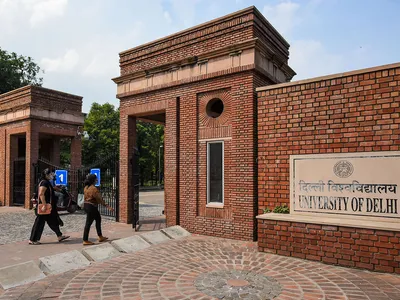New Delhi— Delhi University (DU) has come under fire after its undergraduate registration portal, which went live on Thursday (June 19), listed “Muslim” as an option under the “mother tongue” dropdown while entirely omitting Urdu—a constitutionally recognized language spoken widely across India, particularly among Muslims, as per a report by the Federal.
The controversial listing was quickly corrected, but not before screenshots of the form went viral and drew strong criticism from academicians, activists, and students, who condemned the move as “Islamophobic” and “linguistically biased.”
Democratic Teachers’ Front (DTF) secretary Abha Dev Habib was among the first to raise the issue publicly. “The DU registration form for undergraduate admissions could not be more Islamophobic. Under ‘mother tongue,’ the form omits Urdu entirely while listing ‘Muslim’ as a mother tongue,” she said. “Is it beyond DU’s understanding that Muslims speak the same languages as others from their regions? The omission is despite the fact that Urdu is listed as an officially recognised language in the Eighth Schedule of the Indian Constitution,” Habib added.
She further remarked, “How can a central university publish such a form? This reflects a communal mindset.”
The error, which sparked outrage on social media and across academic circles, was eventually addressed by DU authorities, who claimed it was a “technical glitch” caused by a third-party vendor. They maintained that they had “no idea” how the mistake had crept in and assured that the issue had been resolved.
However, critics argue that the error is symptomatic of a larger problem. “This isn’t just about a form,” said a Delhi-based Urdu scholar. “It’s about the erasure of linguistic and cultural identities under the garb of administrative oversight. If a central university can’t differentiate between religion and language, it’s a matter of deep concern.”
The incident has revived discussions about the marginalisation of Urdu and the communalisation of academic institutions. It comes at a time when language, identity, and representation remain sensitive and politically charged issues in India’s higher education landscape.




